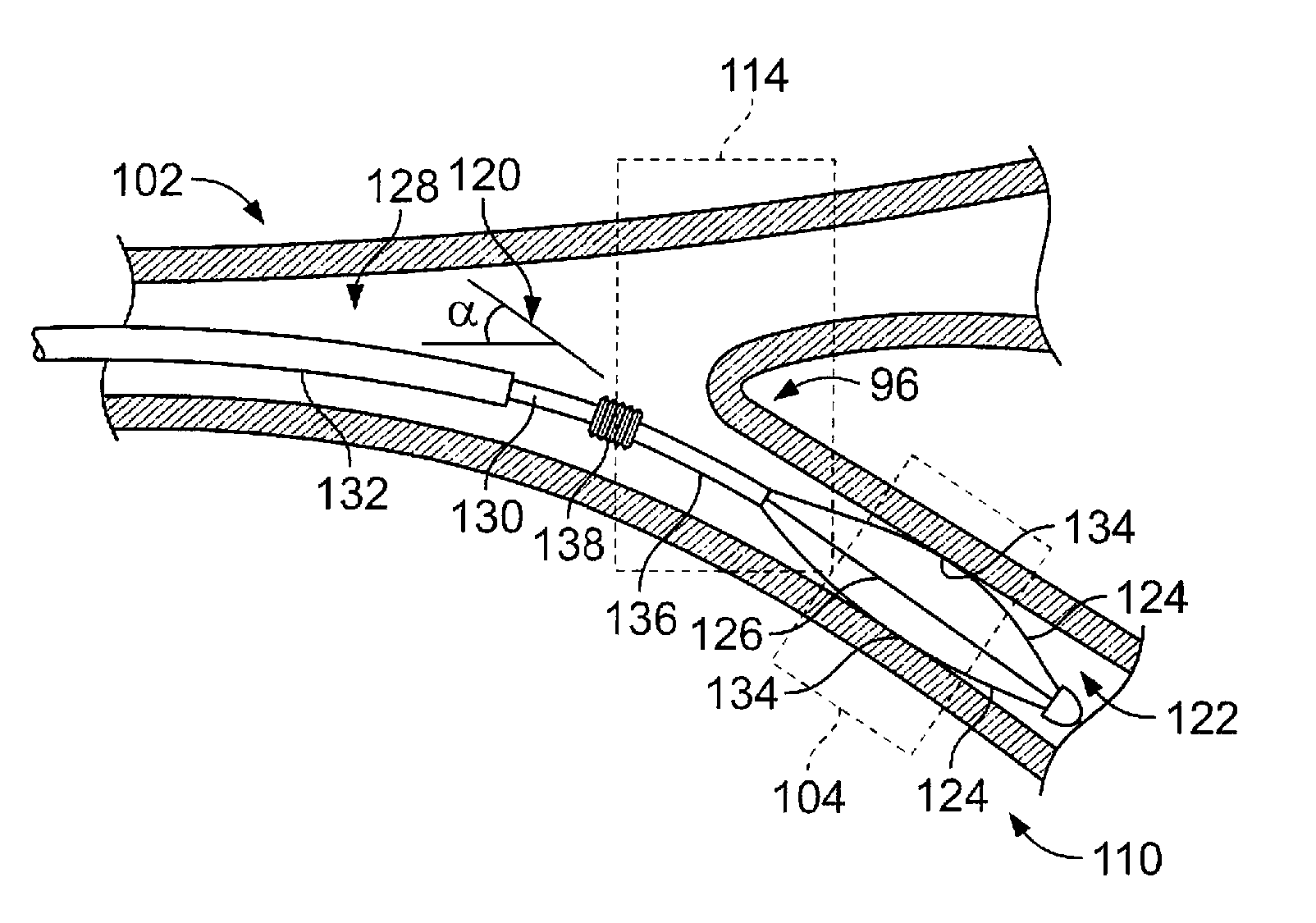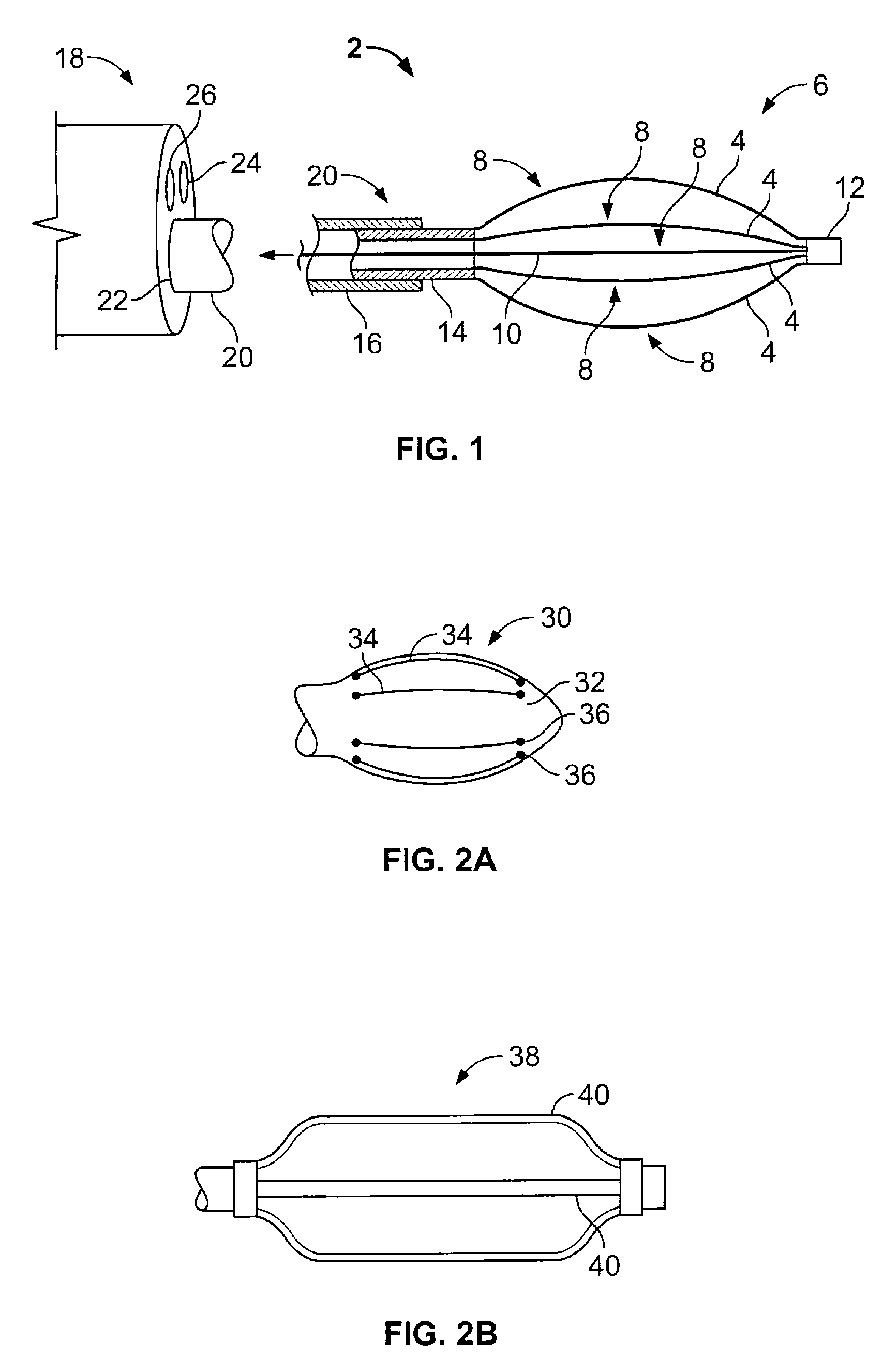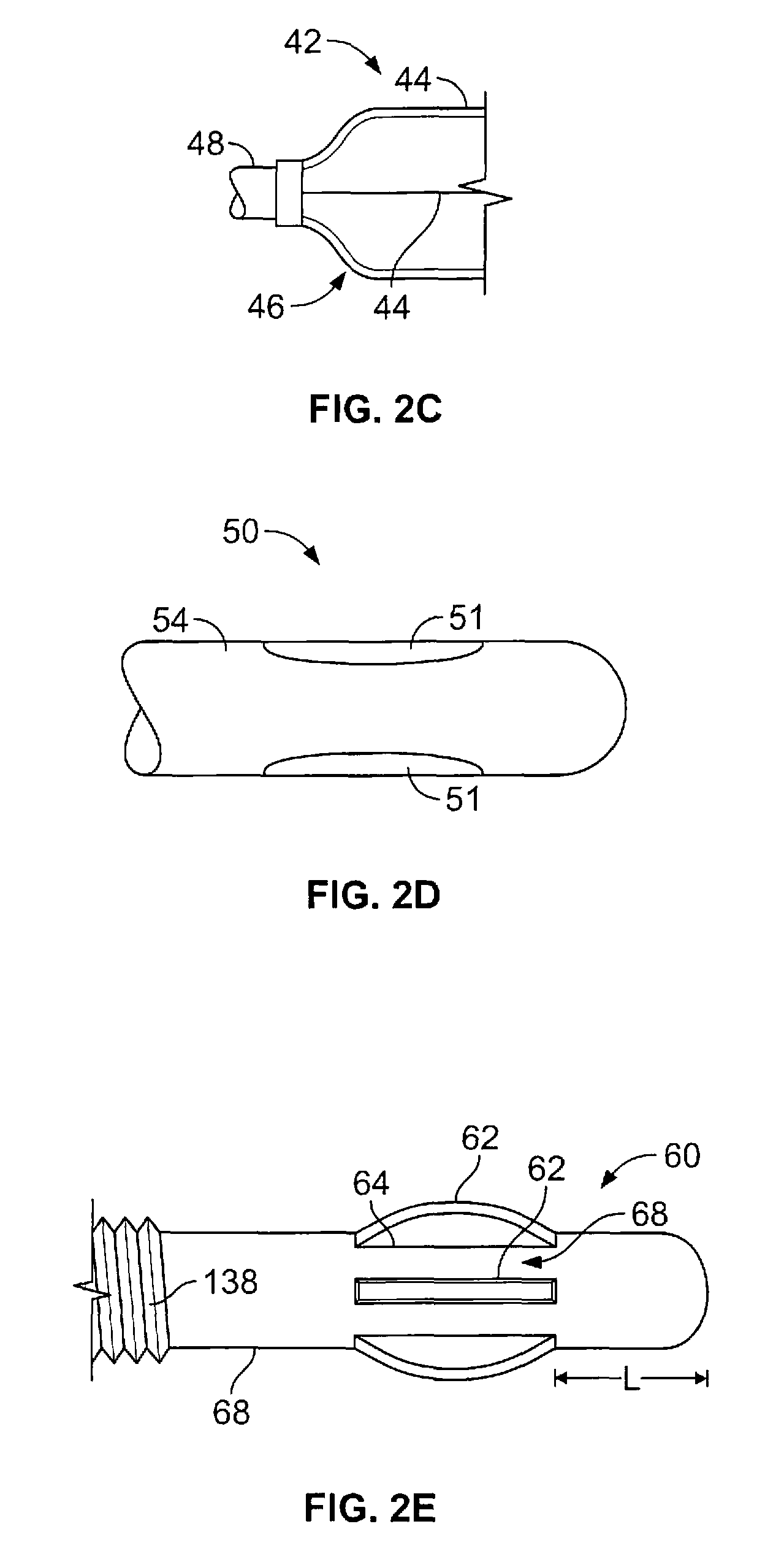Medical device with procedure improvement features
a technology of medical devices and features, applied in the field of medical devices with procedure improvement features, can solve the problems of difficulty in aligning or orientating the subject device, and difficulty in actuating a member, so as to increase effectiveness and efficiency, the effect of increasing effectiveness and efficiency
- Summary
- Abstract
- Description
- Claims
- Application Information
AI Technical Summary
Benefits of technology
Problems solved by technology
Method used
Image
Examples
Embodiment Construction
[0052]It is understood that the examples below discuss uses in the airways of the lungs. However, unless specifically noted, the invention is not limited to use in the lung. Instead, the invention may have applicability in various parts of the body. Moreover, the invention may be used in minimally invasive procedure, or open surgical procedures where orientation and alignment features are desired.
[0053]Generally speaking, the invention includes medical devices including an elongate member with an active distal end, where a junction is provided between the two structures. The junction permits rotation or angular adjustment of the active end relative to the elongate member in order to better situate the active end for contacting the tissue wall of a cavity or passageway give misalignment between such structure and an access pathway. The invention includes methods of using such devices, where the device permits adjustment or realignment improved active member orientation or placement. ...
PUM
 Login to View More
Login to View More Abstract
Description
Claims
Application Information
 Login to View More
Login to View More - R&D
- Intellectual Property
- Life Sciences
- Materials
- Tech Scout
- Unparalleled Data Quality
- Higher Quality Content
- 60% Fewer Hallucinations
Browse by: Latest US Patents, China's latest patents, Technical Efficacy Thesaurus, Application Domain, Technology Topic, Popular Technical Reports.
© 2025 PatSnap. All rights reserved.Legal|Privacy policy|Modern Slavery Act Transparency Statement|Sitemap|About US| Contact US: help@patsnap.com



